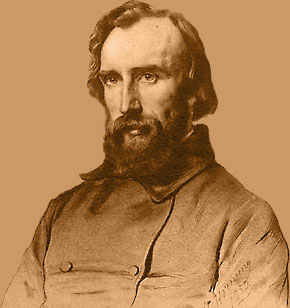Henri Frederic Amiel and Moral Philosophy
What is the right thing to do? This is the central concern of the branch of ethics known as moral philosophy. In Switzerland in the 19th century, one of the key thinkers in the field of moral philosophy was Henri Frederic Amiel.
An overview of moral philosophy
When thinkers such as Aristotle were writing in the third century BCE, moral philosophy was simply known as 'Ethics'. This comes from the Greek word for 'habit'. Essentially, from these earliest days, moral philosophy has been about how we should conduct our lives as individuals: what are the best habits to cultivate to ensure that we always do the right thing? Sometimes, moral philosophy focuses on abstract principles (for instance, 'lying is always wrong'). At other times, moral philosophers consider how circumstances affect moral decision making - for example, would lying still be wrong in a tricky case where a thief is asking us where our treasured belongings are so that they can steal them? Another branch of moral philosophy is 'meta ethics', which is devoted to determining how we can tell that a given moral rule that we have proposed is true or valid.
Who was Amiel?
Amiel was born in Geneva in 1821 and he died in Geneva in 1881, having spend much of his life travelling around Europe - particularly Germany (he was heavily influenced by philosophers living in Berlin at the time). Amiel wrote poetry as well as philosophy, but it was only after his death that his fame really took off. This was aided by the production of an English translation of Amiel's works by Mary Augusta Ward. Ward helped to bring Amiel's thought to new, sympathetic audiences. During his lifetime, he worked as a professor of moral philosophy in Geneva.
Amiel's key philosophical theories
Generally accepted to belong to the group of philosophers known as moral philosophers, Amiel's theories were esoteric in nature. His theories survive in a book known as 'Journal Intime' ('Intimate diary'). Here, he wrote about the individual human being's capacity for transformative change as well as our relationship to the divine. He argued that the only true subject of study was the way in which the human mind can metamorphose and take different forms. He also advocated the need to achieve inner peace within ourselves, and envisaged this as occurring through a relationship with the divine.
Amiel's influence on moral philosophy
Amiel influenced other religious thinkers, as well as ethicists who are interested in whether or not a once evil human being can change and become good through good habits. In addition, he has informed many studies of organisational culture, and led to a strand of thinking that focuses on individual transformation as a way of transforming an organisation from within.

